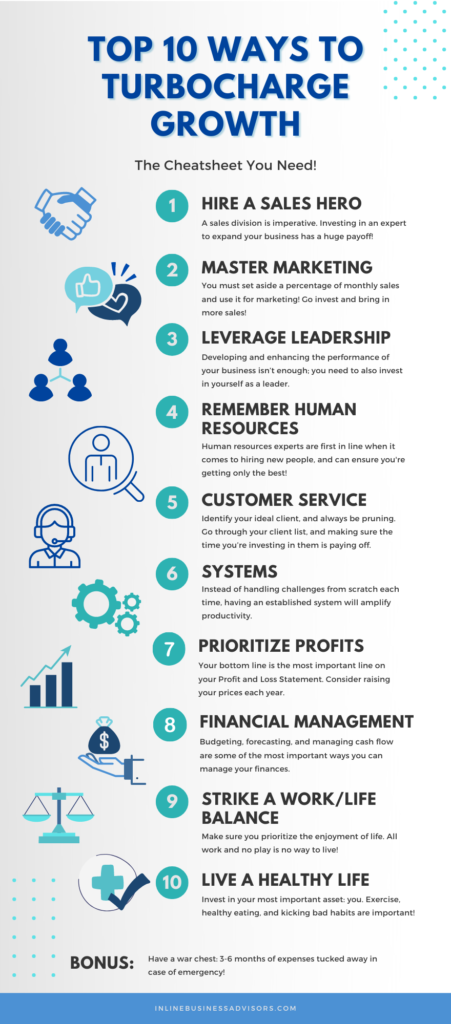The road to success in business is a challenging one. The stress of competition, the pressure to perform, and deadlines can take their toll on the mental health of business owners. Entrepreneurs are constantly battling against themselves – thinking they could be doing more, working harder, and succeeding faster. It’s no wonder that a 2015 UC Berkeley study found 72% of entrepreneurs have mental health concerns.
Although mental health awareness has recently increased, our prevailing social narrative about entrepreneurship doesn’t make matters any easier. Business moguls will invariably tell you the same thing if you ask them how to make it as an entrepreneur: to be successful, you have to be willing to pay the price. Press them further, and they’ll tell you success sometimes demands overlooking your relationships, your health, and even your emotional well-being. The idea is that hard work will lead to freedom and ultimately help you build a new life.
In a past interview, Tesla CEO Elon Musk dropped this gem for aspiring entrepreneurs, “Just work like hell. You just gotta put in 80-100 hours per week, week after week.” Because of that, many business owners have come to see it as a badge of honor to work day and night. Sadly, the average entrepreneur has no idea how much pressure they are under until it becomes too much for them.
Entrepreneurship Burnout and Mental Health
If we followed Mr. Musk’s suggestion, working an 80-hour week would mean working 13 hours a day six days a week. A 100-week hour means 16 hours of work per day for six days. Working this hard is stressful. It also leaves little room for everyday things like socialization, exercise, or sleep. The culmination of these challenges can result in burnout, the first of many mental health concerns entrepreneurs face. A recent Hubspot survey of over 300 entrepreneurs found that 63% of business owners experienced burnout at some point in their journey. The World Health Organization defines burnout as “a syndrome conceptualized as resulting from chronic workplace stress that has not been successfully managed”. It is characterized by:
- Feelings of energy depletion or exhaustion
- Increased mental distance from your job or feelings of negativism or cynicism related to it
- Reduced professional efficiency
Burnout occurs when people feel overextended or overwhelmed by their responsibilities or lack of control over these obligations. This can lead to long-term effects such as:
- Anxiety
- Depression
- Poor concentration
- Sleep disturbance
- Low self-esteem
- A sense of ineffectiveness or failure
- Reduced productivity
- Absenteeism
- Suicide in extreme cases
This means that entrepreneurs who don’t know how to deal with work pressure can be more prone to multiple mental health issues, which will make them less likely to handle problems effectively in other areas of life.

Why Mental Health Is Important for Entrepreneurs
Mental health refers not only to an individual’s emotional well-being but also to their cognitive functioning, physical well-being, and social life. Achieving this balance is crucial for several reasons:
Mental health affects productivity
It is tough to focus on work and give your best effort when you’re not feeling your best mentally. This makes it harder to handle the demands of your business, resulting in decreased productivity. On the flip side, prioritizing your mental health empowers you to handle the demands of your business more effectively and become more productive overall.
Mental health affects decision-making
Mental health can also impact your ability to make sound decisions. When you’re struggling with your mental health, you may be more prone to impulsive or rash decision-making, which can negatively affect your business. Taking care of your mental health allows you to be in the best possible state of mind to make informed and strategic decisions that benefit your business in the long run.
Mental health affects relationships
Entrepreneurs rely on a network of colleagues, employees, and clients to succeed in their business. Poor mental health can negatively impact relationships and make it difficult for you to communicate effectively and collaborate with others. Staying on top of your mental health allows you to maintain positive and productive relationships and create a supportive work environment.
Mental health affects overall quality of life
Lastly, mental health is an essential factor in overall quality of life. As we discussed earlier, poor mental health can lead to feelings of sadness, loneliness, and a lack of fulfillment. These feelings may manifest in unhealthy habits such as overeating, substance abuse, or workaholism. Consequently, maintaining your mental health helps you improve your overall well-being and enjoyment of life.
6 Strategies to Promote Mental Health for Business Owners
For many business owners, poor mental health comes from an inability to strike a work-life balance. It’s easy to get caught up in the demands of running a business and neglect your well-being in the present as you work toward a “great” future. However, that will only be possible if you maintain good health. Without you, the business won’t survive, leave alone scale to the epic proportions you dream of.
While working hard in the early stages of your business is unavoidable, you don’t have to work yourself to death to succeed. Multiple studies prove that can actually be more counterproductive. With that in mind, here are 6 strategies you can use to help promote your mental health:
1. Learn How to Set Boundaries
If you’re like most people, you chose entrepreneurship because of the promise of flexibility and freedom in the future. That has been named as one of the top reasons for the mass exodus out of the workforce since the pandemic.
However, entrepreneurship can be challenging to hack, especially in the early days. Between adapting to tech trends and keeping up with the competition, you can feel overwhelmed and unable to live up to what you had in mind. While the occasional all-nighter and 16-hour day may be okay as you scale, beware not to make that your lifestyle.
To avoid that, ensure you set boundaries between your work and personal life. This can involve setting specific times for checking work emails, delegating tasks to others, and taking time off when needed.
You might feel guilty when something doesn’t get done but don’t push yourself too hard, or there’s a risk that your body and mind will break down. Instead, be realistic with what you have time for within a particular time frame and what you don’t. This way, you’ll have the energy to focus on crucial tasks, become more efficient, and increase your productivity.
2.Take Time to Practice Self-Care
Taking care of yourself is not a luxury; it is a necessity. Self-care in this context refers to any activity that helps an individual take care of their physical, mental, and emotional well-being. This can include exercising, getting enough sleep, eating a healthy diet, and taking breaks to relax and recharge.
These activities are scientifically proven to boost mental wellness. For example, regular exercise releases endorphins that improve mood, reduce stress, and improve self-esteem. Eating a healthy diet can also help alleviate the symptoms of mental health issues like depression and anxiety, in addition to helping manage your weight.
Mental health problems can lead to poor sleep patterns. Poor sleep patterns can exacerbate your mental health struggles. Making sure you get enough sleep each night can help you relax and recharge, improving your mental and overall health. (Adults should aim for 7-9 hours of sleep per night.)
3. Learn to Seek Support
41% of small business owners feel lonely in their entrepreneurial journey. But entrepreneurship need not be a lonely journey. Admittedly, you might be the only one that really sees what your business can become if you don’t give up on it. You’re also the only one that loves it as it should be loved, especially if it’s more than just a means to an end.
That said, seeking support from loved ones and professionals such as coaches can help boost productivity and reduce the mental burden on yourself. Joining a network and connecting with other small business owners can also empower and energize you. These groups often have more experienced business owners who can mentor and help you navigate the everyday problems many businesses face.
Also, learn to build systems, delegate, and outsource where necessary. Let these individuals handle non-core functions to allow you to focus on what really matters in the business. This way, you’ll have more free time for yourself and your loved ones and ultimately boost your mental health.

4. Stay Organized
Business success is not just the result of having an innate talent for making decisions and being lucky. Good time management and organization skills are crucial to sustainable success. It also plays an important role in how business owners can maintain their mental health. Granted, it may not always be possible to stick to your schedule. However, staying organized can help you stay on top of tasks and reduce stress.
Most successful people have a daily routine that helps them stay organized. This can include waking up at the same time every day, clocking off at a specific hour, scheduling specific events periodically, etc. When you are organized, you can prioritize your tasks and focus on what needs to be done, which can help you feel more in control of your workload and less overwhelmed. Additionally, staying organized can help you save time by reducing the need to search for lost items or redo tasks that need to be completed more efficiently.
Here are a few ways business owners can stay organized to promote mental health:
- Create to-do lists: To-do lists can help you stay on top of your tasks and prioritize what needs to be done.
- Use productivity tools: Calendars, project management software, and note-taking apps can help you stay organized and manage your time effectively.
- Please stick to your priorities: Unless it’s an emergency, ensure you stick to the specific tasks on your to-do list. This will help you avoid feeling overwhelmed and promote your attempts to build a system.
5. Take Periodic Breaks
Working all the time makes your brain foggy. Taking breaks allows you to relax and feel rejuvenated, reducing stress, and improving your overall well-being. Try booking a vacation in advance and disconnecting from work entirely during that period.
Make time for hobbies and interests outside of work. Doing activities that bring you joy and fulfillment can help you recharge and improve your overall well-being. They can also serve as networking events where you grow your support system, which is good for the business.
Disconnecting from work-related devices during non-work hours can also help. Consider turning off push notifications or setting your phone to “Do Not Disturb” mode. You get more mental clarity when you’re not working all the time. That helps you see opportunities clearly and decisively act on them. This also boosts your creativity,allowing you to come up with better ideas and execute them faster.
6. Invest in Financial Literacy
Money can be a major source of stress and anxiety for many people. It’s one of the leading causes of mental health struggles in the US today.
When you are struggling financially, you may feel overwhelmed, anxious, and depressed. These negative emotions can impact your overall mental health and well-being. Investing in financial literacy can promote your mental health by helping you better manage your finances and reduce financial stress.
When you have a good understanding of financial concepts and strategies, you are better equipped to make informed financial decisions and plan for the future. This can help you feel more in control of your business’s present and future and reduce financial-related anxiety and stress.
What to Do When Struggling With Mental Health
If you’re already struggling with your mental health, it’s important to remember that you’re not alone and that it’s okay to seek help. Here are a few things you can do to manage the issue:
- Reach out for support: Talk to a trusted friend or family member about how you feel. Having someone listen and offer support can help you figure out the next steps in your journey.
- Find support from a peer group or mentor: Sometimes, connecting with others experiencing similar challenges can be helpful. Consider joining a support group or finding a mentor to offer guidance and support.
- Take time off: If you’re feeling overwhelmed, consider taking a step back and taking a break. This will give you time to rest and recharge and help you return to your business with a fresh perspective.
- Seek help from a mental health professional: A therapist or counselor can provide the support and guidance you need to manage your mental health. Don’t be afraid to reach out for help. Remember, seeking help is a sign of strength, not weakness. Many resources are available to help entrepreneurs manage their mental health and find support.
- Seek help from your primary care doctor: In some cases, mental health issues may require medical intervention. If you’re experiencing severe symptoms, such as thoughts of self-harm or suicide, please seek help from a medical professional as soon as possible. Your primary care doctor can refer you to a mental health professional and help you get the care you need.
Final Thoughts
Starting and running a business is a challenging but rewarding journey. By prioritizing your mental health as business owners, you can better handle the challenges that come your way and build a more sustainable and successful business. Don’t be afraid to seek help if you’re struggling, and remember to take care of yourself along the way. Your mental health is just as important as your business, and taking care of yourself can better serve your customers and your community.

Larry Vivola is a successful business coach who coaches entrepreneurs anywhere in the world via Zoom. If he’s not coaching he’s making meatballs and entertaining friends and family!
Free Advice Sucks! Invest in a one-time strategy session and pick Larry’s brain to help solve a pressing problem, discuss an idea, or brainstorm how to give your business performance a Turbo Boost!!! In the end your investment will yield you more money, time, and happiness!

